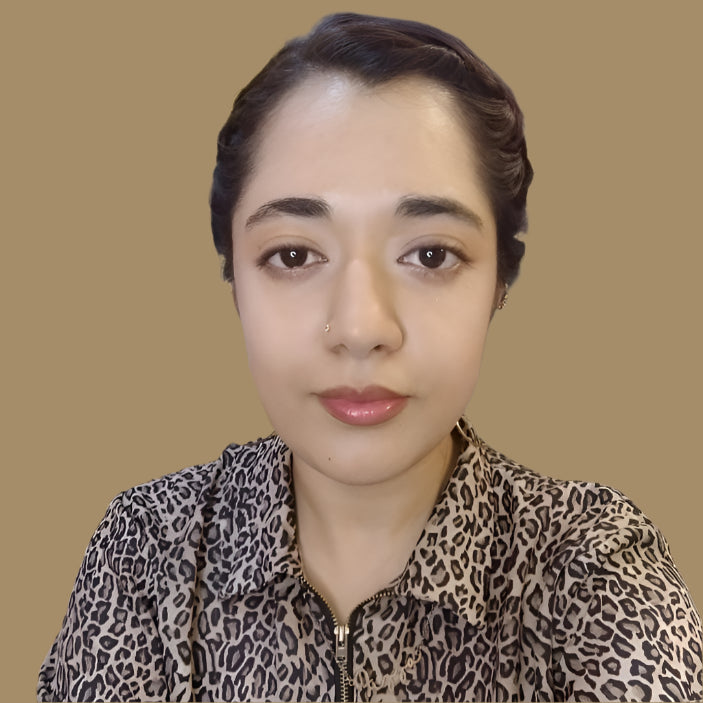
Fizza Hussain
Fizza Hussain is a visual artist based in Lahore, Pakistan. They completed their Bachelor's degree in Fine Arts with a specialization in Miniature Painting from the National College of Arts, Lahore in 2018, and their Master's in Visual Art from the same institution in 2021. During their undergraduate studies, the minor subjects Materiality in Art and Relational Aesthetics played a significant role in shaping their visual language.
In 2016, Hussain attended a summer oil painting workshop at the Shakir Ali Museum, which concluded with an exhibition at the museum. That same year, they exhibited their work at Zahoor-Ul-Akhlaq Gallery, NCA.
Following graduation, Hussain participated in several group exhibitions including Another Matter and Art for Artist: Qutb Rind and Contemporaries at O Art Space, Lahore in 2018, and Garden of Spirits at Taseer Art Gallery in 2020.
Hussain was involved in the Maktab project, a collaborative initiative with the Aga Khan Museum presented during the first Lahore Biennale. They also took part in the second edition of Maktab, a miniature painting workshop held at QUAD Gallery, Derby, UK in 2019.
In addition to their visual art practice, Hussain worked as an art director for one year, contributing to two short films: Half Cooked directed by Shahrukh Naveed and Explicit directed by Eshah Shafeeq.
Their most recent work was shown in a three-person exhibition titled Parallel Sphere in July 2024.
Artistic Interests and Influences
Hussain's creative practice is inspired by manga art, the symbolic language of tarot cards, and the writings of Neil Gaiman, Franz Kafka, and Edgar Allan Poe. Notable influences include Kafka’s The Metamorphosis, Poe’s The Raven, and The Tell-Tale Heart. Hussain is also a practicing divination consultant and is currently developing their own tarot deck.
Artist Statement
Fizza Hussain creates visuals inspired by the symbolism of traditional tarot cards, which serve as tools for communication and connection. Humans have always sought ways to interpret the past and anticipate the future, and divination is one such method of gaining insight and guidance.
Though often dismissed as a game, tarot has the potential to create space for people to express pain, hope, desire, and love without feeling exposed. The outcome can be casually disregarded, yet the act of sharing forms a meaningful connection between the reader and the querent.
Through this symbolic language, Hussain’s art invites viewers into a space where storytelling and emotion converge, offering moments of reflection, connection, and quiet understanding.
